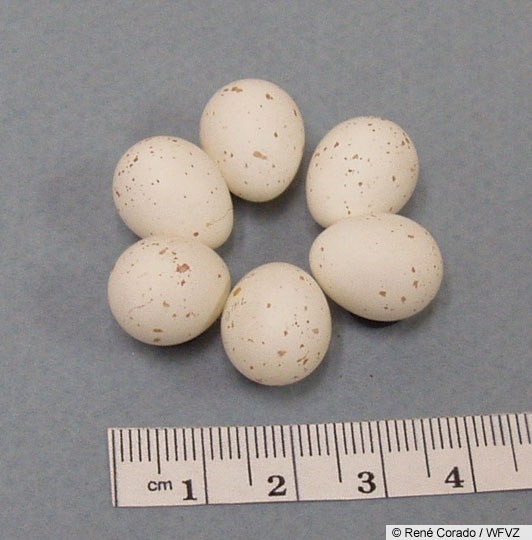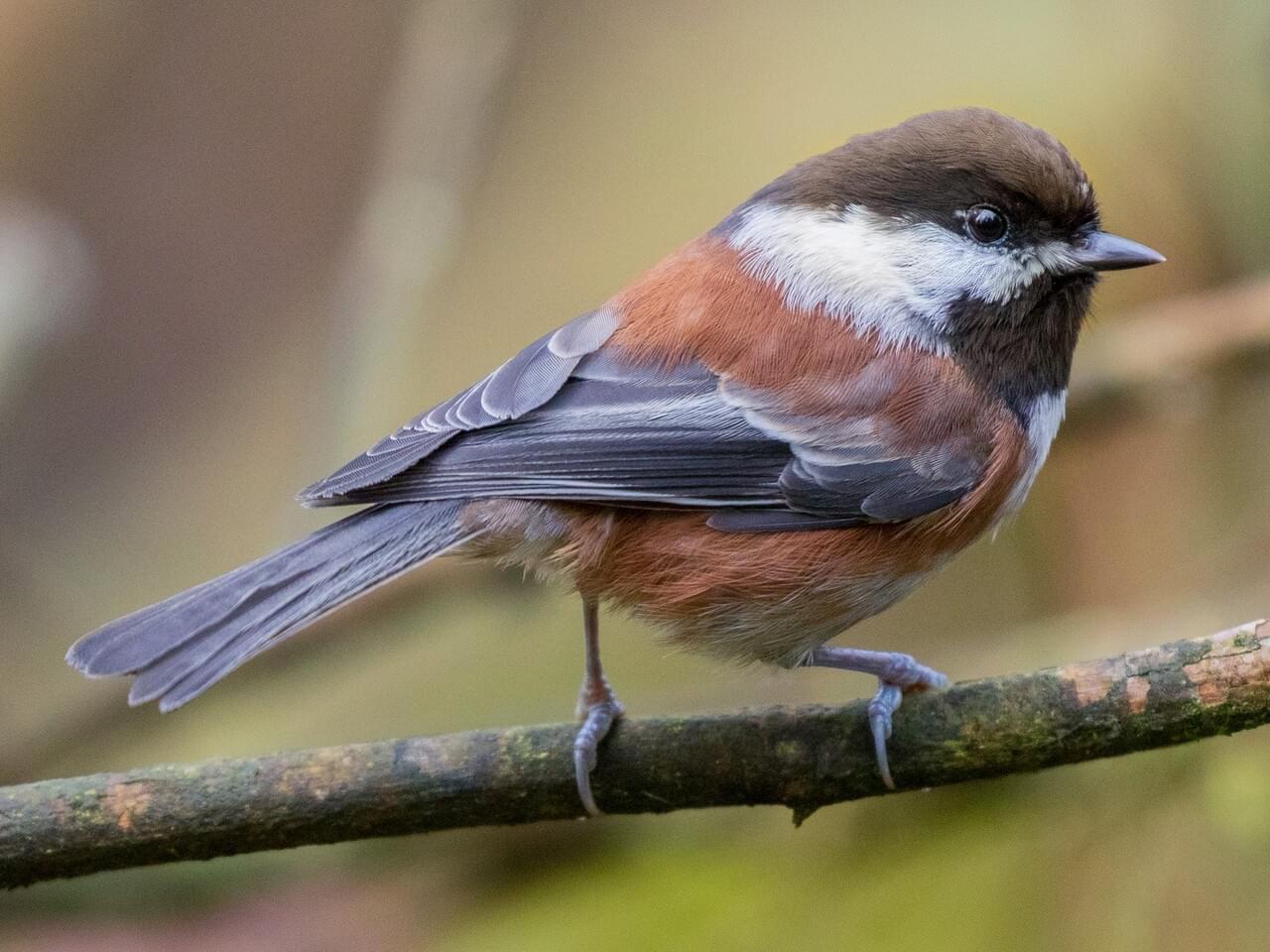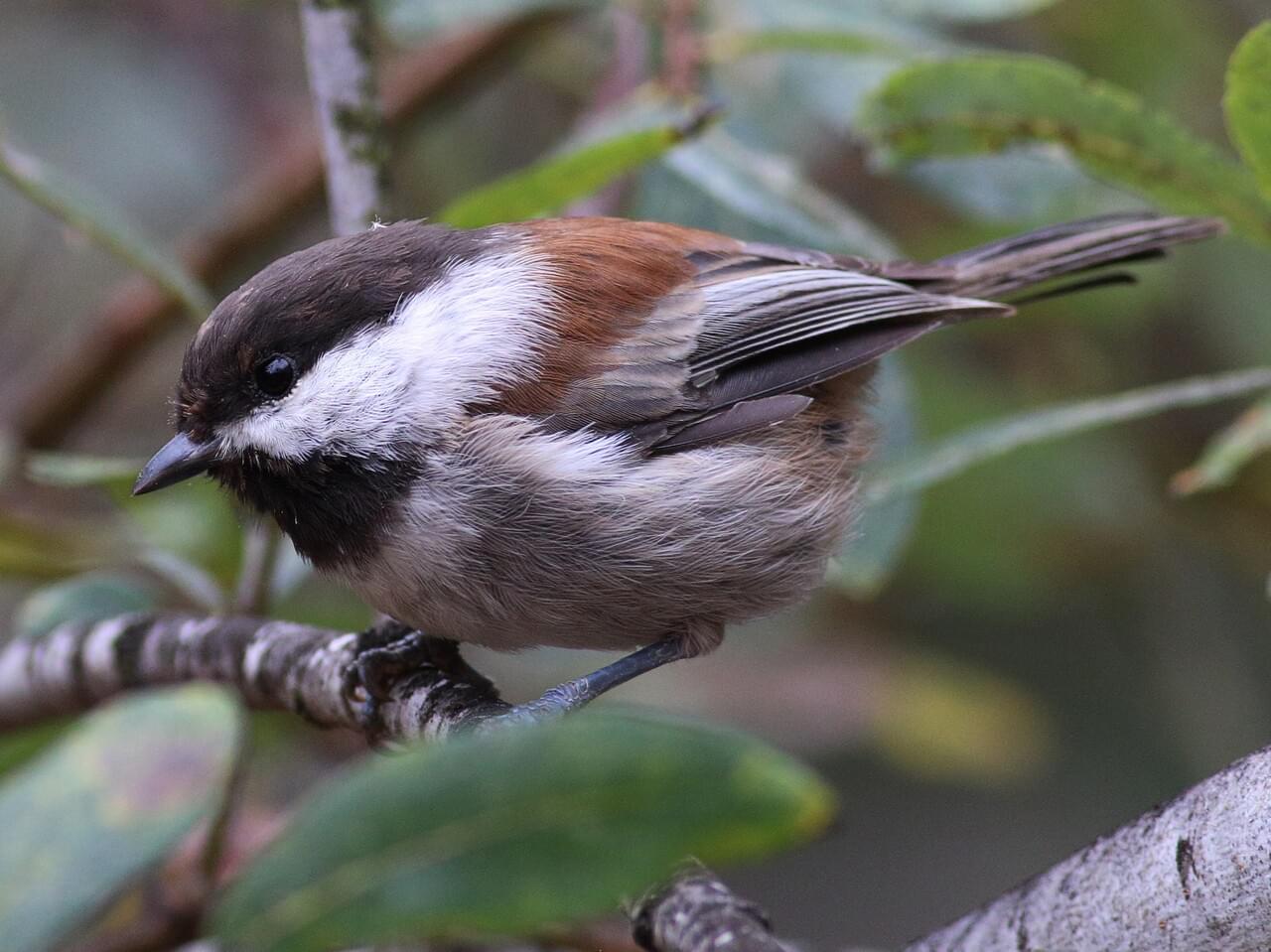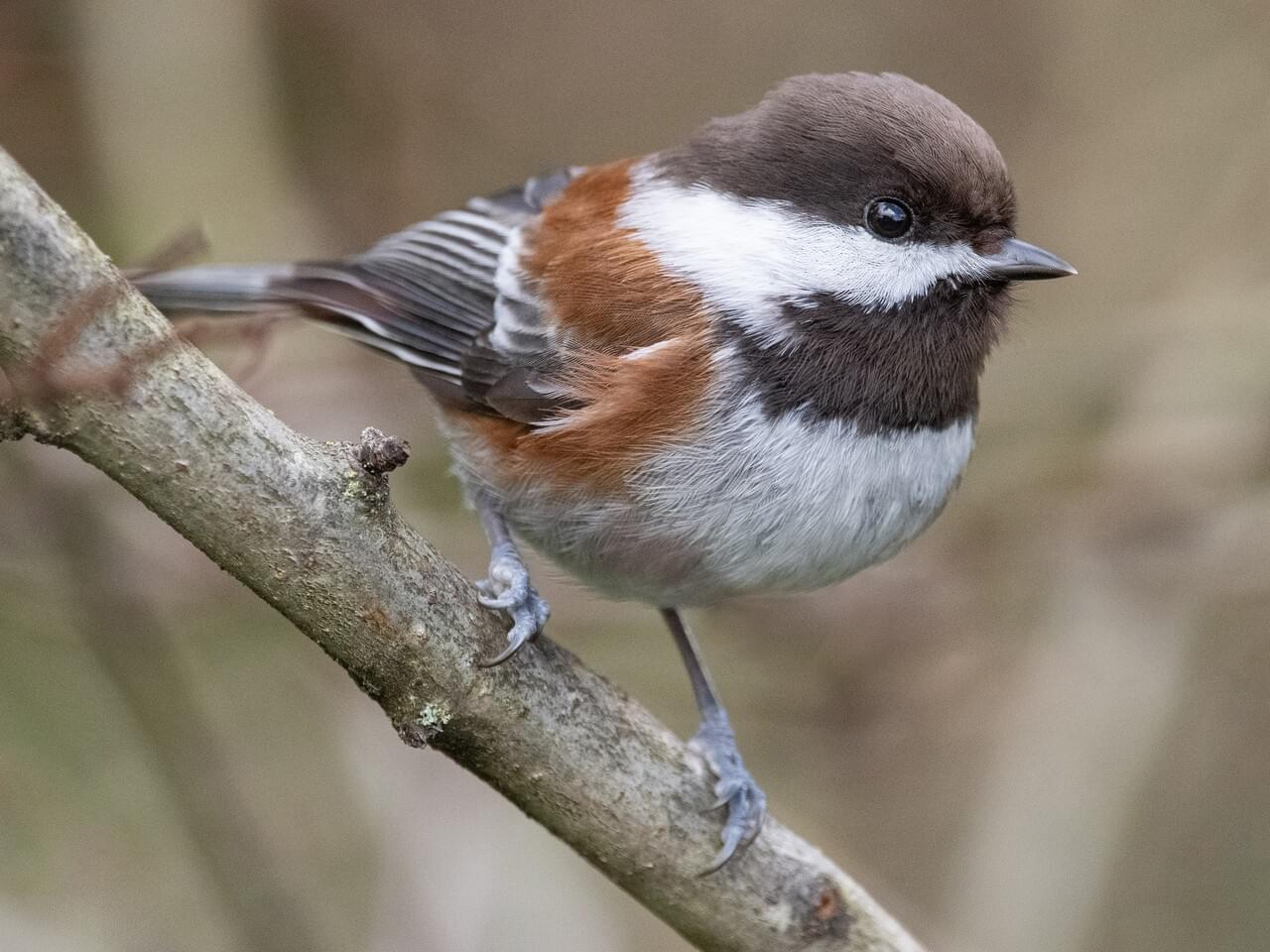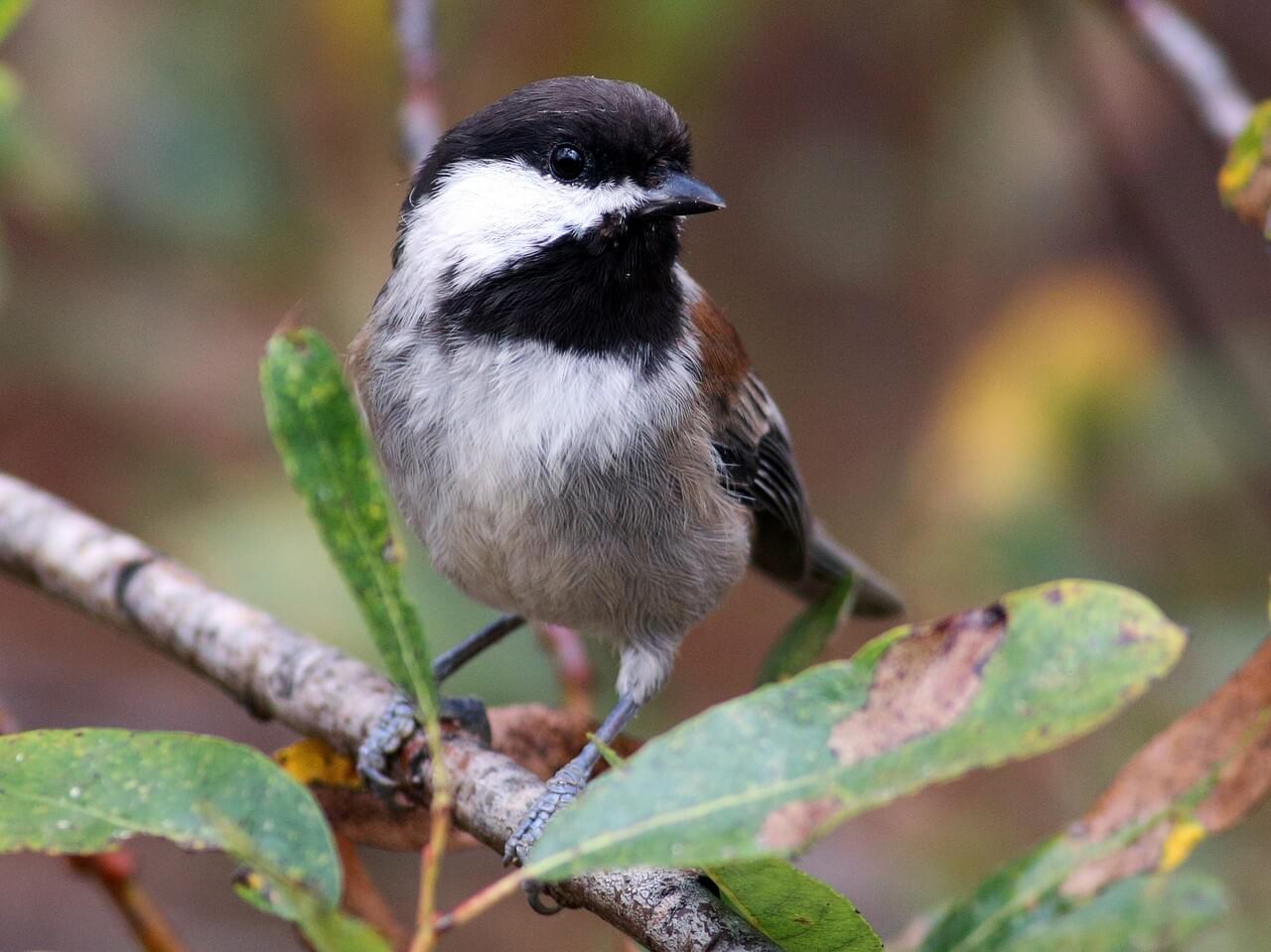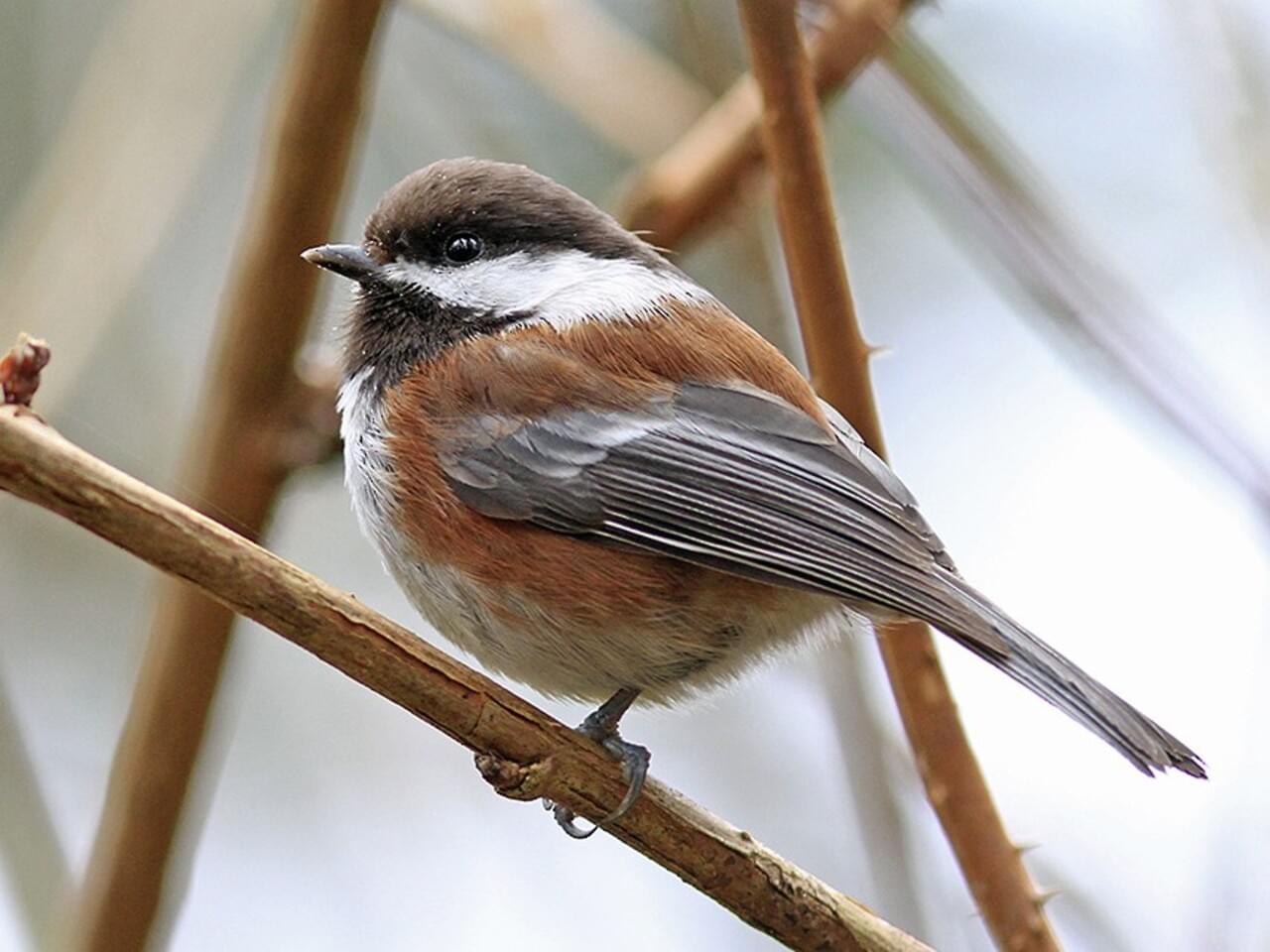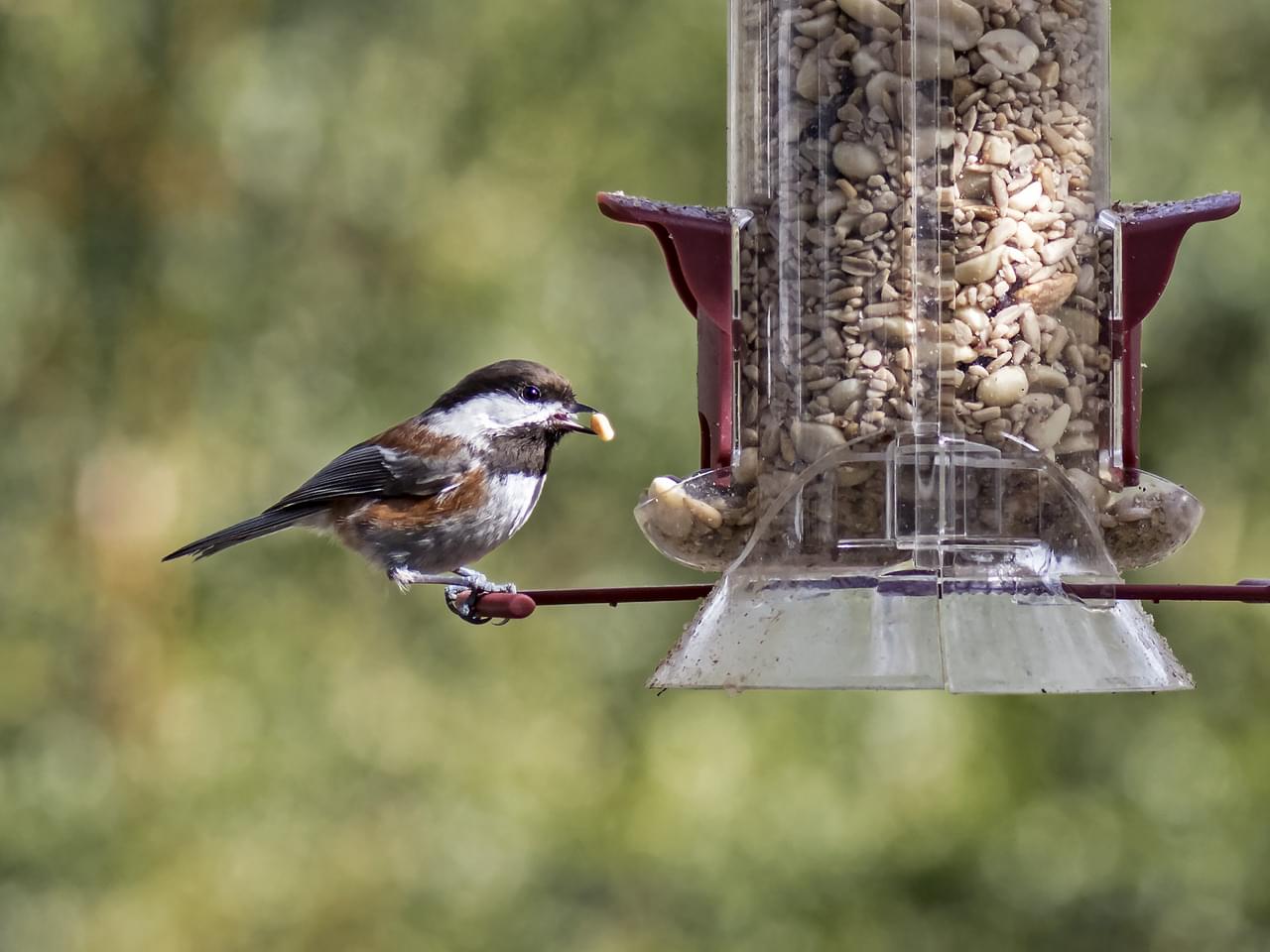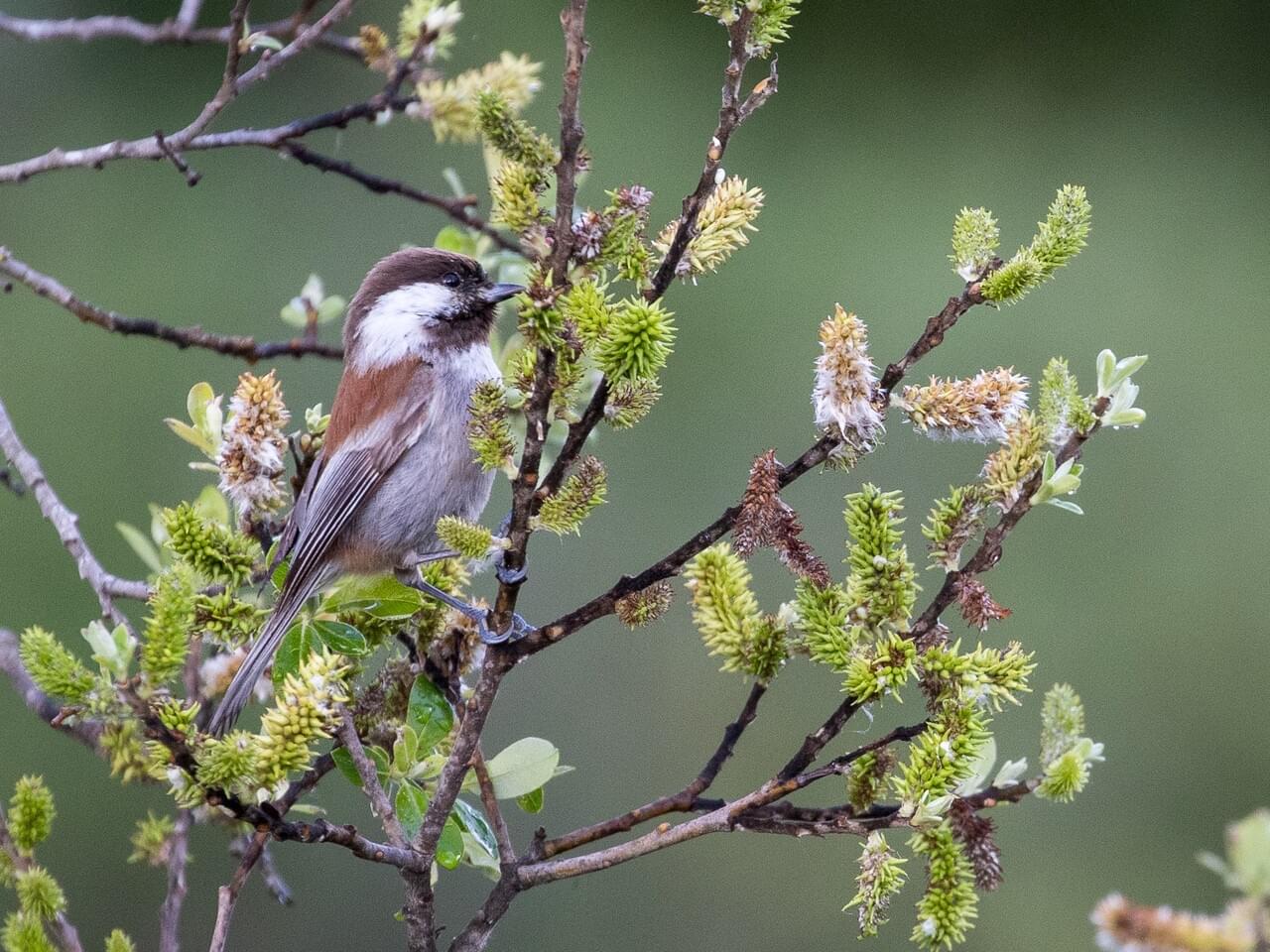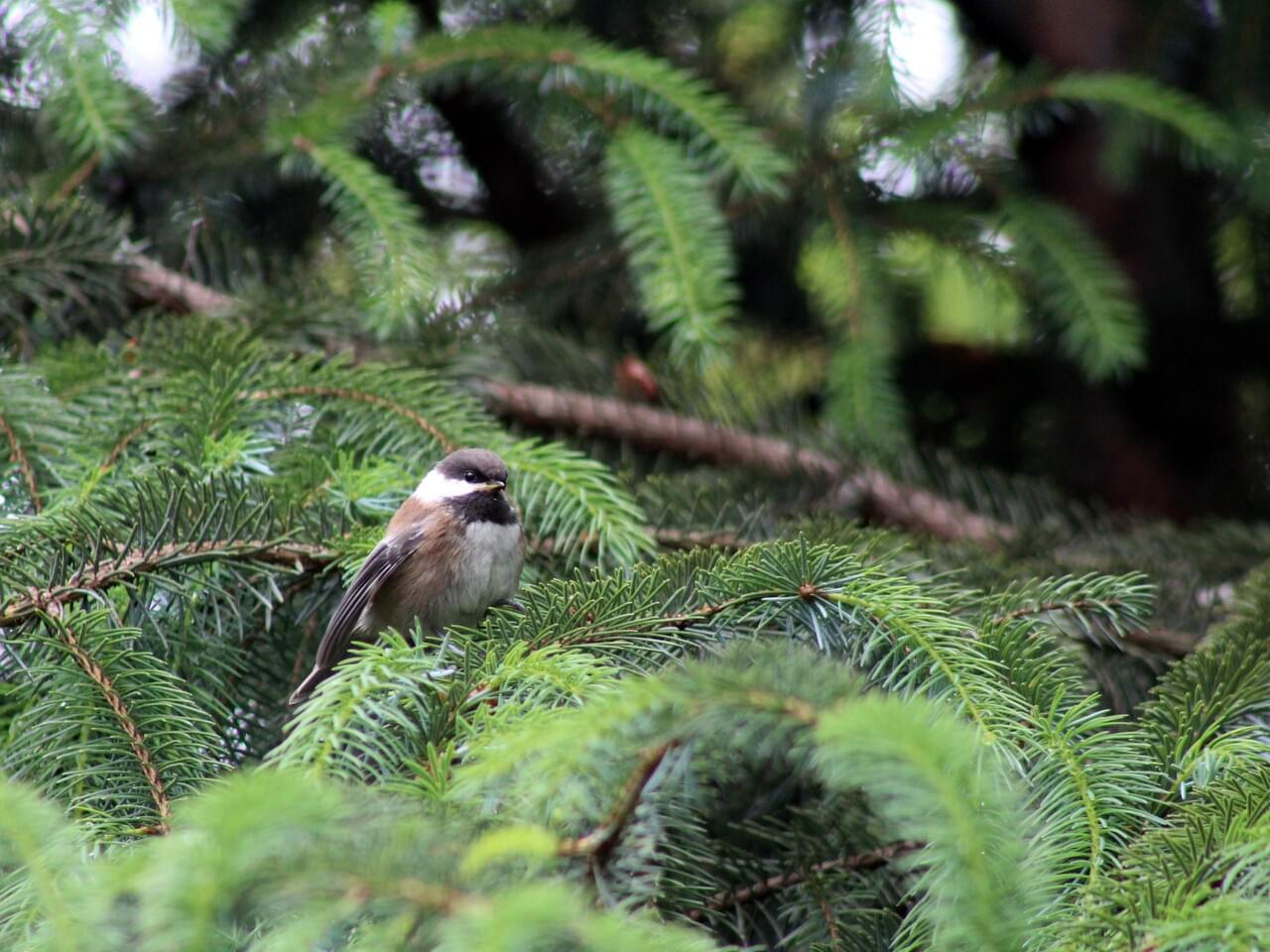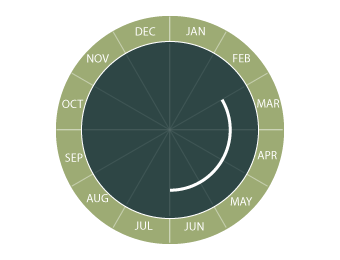Chestnut-backed Chickadee
Chestnut-backed Chickadee
(Poecile rufescens)
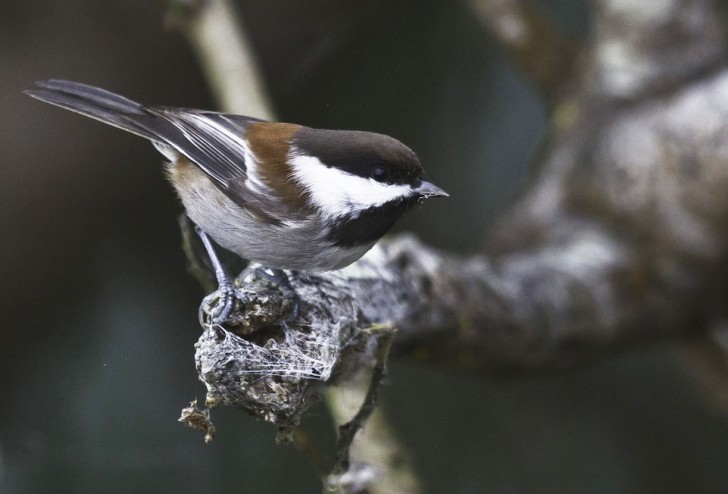
Song
© Nathan Pieplow
Calls
© Charles A. Sutherland / Macaulay Library
Song
© Nathan Pieplow
Calls
© Andrew Spencer / Macaulay Library
Calls
© Bruce Lagerquist / Macaulay Library
Calls
© Thomas G. Sander / Macaulay Library
Calls
© Paul Fenwick / Macaulay Library
Calls
© Andrew Spencer / Macaulay Library
Calls
© Andrew Spencer / Macaulay Library
Calls
© Paul Fenwick / Macaulay Library
Calls
© Geoffrey A. Keller / Macaulay Library
Flock calls
© Paul Marvin / Macaulay Library
Where To Find It
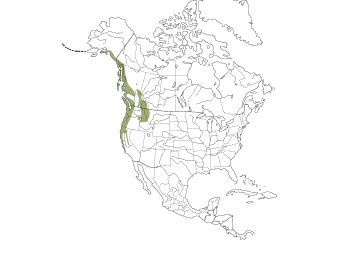
Source: Birds of the World
Habitats
Substrates
What You'll Find
Nest Type
Chick
Clutch Size
1
6
7
11
Nest Height
12 ft
1 ft
Nesting Statistics
Incubation Period
12-18
days
days
Brooding Period
18-21
days
days
Useful Hints
- The Chestnut-backed Chickadee uses lots of fur in making its nest, with fur or hair accounting for up to half the material in the hole. The adults make a layer of fur about a half-inch thick that they use to cover the eggs when they leave the nest.
- Males take the first step in choosing nest sites, approaching a possible location while the female watches. Later, the female decides on the site, enters the cavity, and accepts pieces of vegetation brought by the male.
- Chestnut-backed Chickadees prefer nest boxes oriented in an eastern to southeastern direction.

